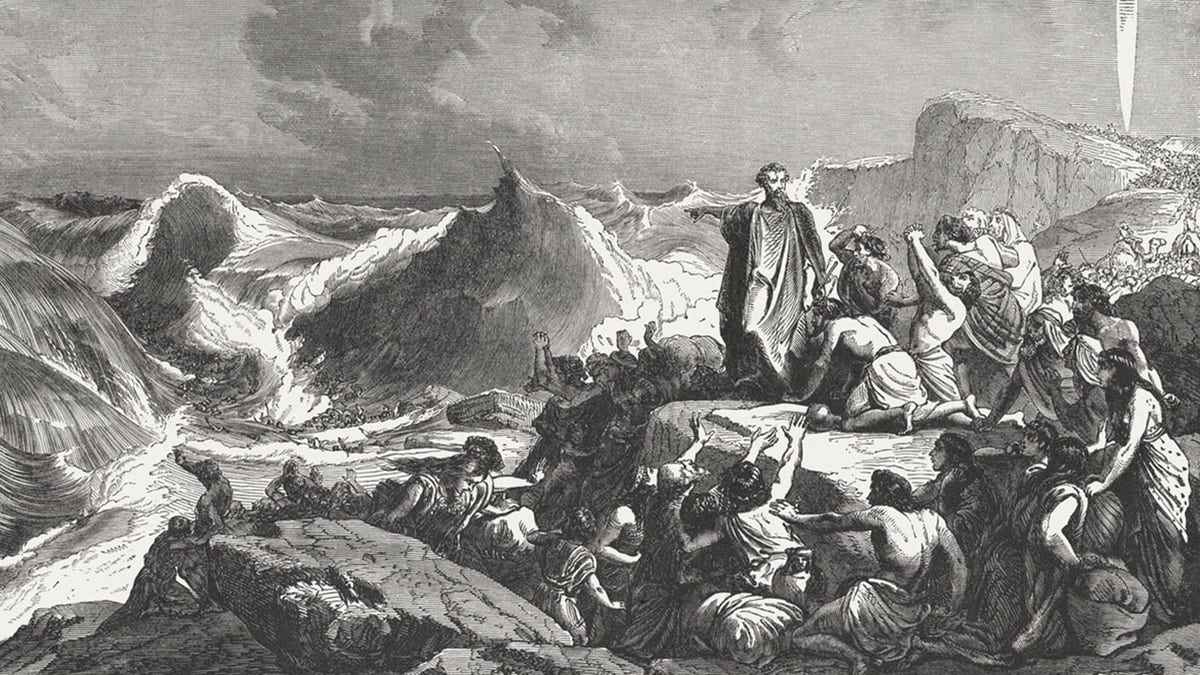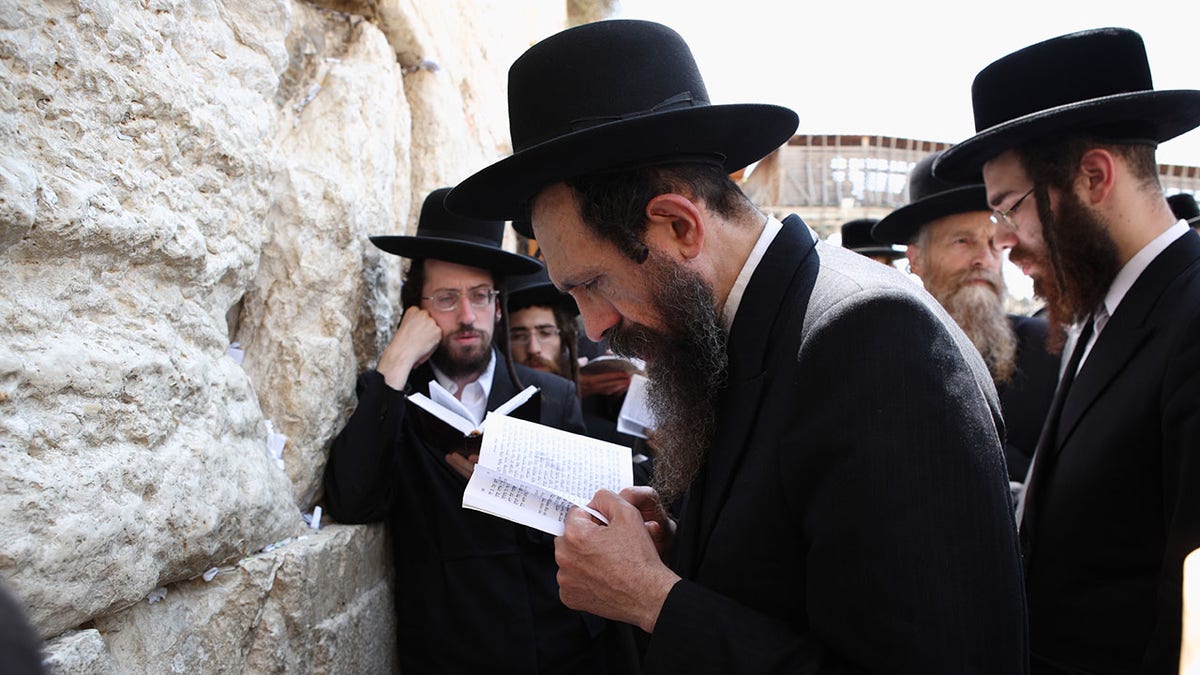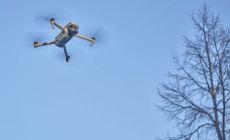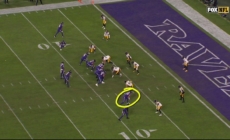-
American Culture Quiz: Test yourself on Christmas classics, fine firs and popular proteins - 20 mins ago
-
Newsom reads the election returns and heads to red California - 25 mins ago
-
Toddler’s Guilt Trip Works to Perfection on Grandma: ‘Caved In Too Quick’ - 31 mins ago
-
‘Man of Steal’: Rickey Henderson’s record-setting career by the numbers - 33 mins ago
-
‘Jeopardy!,’ ‘Wheel of Fortune’ gave risqué answers, celebrity lookalikes and tricky clues in 2024 - 40 mins ago
-
Newsom and a fellow Democrat spar over constitutional convention on gun control - about 1 hour ago
-
‘SNL’ Takes on New Jersey Drones: ‘Dumb Theories’ - about 1 hour ago
-
Tom Brady on Steelers QB Russell Wilson's TD to Cordarrelle Patterson – 'Just a mismatch' | NFL Highlights - about 1 hour ago
-
Inside China’s intelligence operation in L.A. County - 2 hours ago
-
Germany Christmas Market Latest: Suspect Remanded in Custody - 2 hours ago
Moses retrieving bones of ‘long-dead hero’ should inspire ahead of Tisha B’Av
“And Moses took the bones of Joseph with him; for Joseph had solemnly sworn the people of Israel, saying, ‘God will visit you; then you must carry my bones with you from here'” (Exodus 13:19).
This verse comes from the book of Exodus, the second book of the Bible. Tradition states that Exodus was partially authored by Moses, the website Bible Study Tools says, and the book tells the story of the Israelites’ escape from Egypt to the Promised Land.
“Jews had been brutally enslaved in Egypt for 210 years when a young Moses, who was raised in Pharaoh’s palace, confronted the leader and famously urged him to ‘let my people go,'” Shalom Lamm told Fox News Digital.
COLORADO FAITH LEADER USES BIBLE VERSES AS ‘CLARION CALL’ TO EXAMINE ‘WHY WE FOLLOW CHRIST’
Lamm, based in Israel, is co-founder and chief historian of Operation Benjamin, an organization that seeks to identify Jewish American soldiers who were buried in overseas military cemeteries under headstones with Latin crosses. The organization works with the federal government to replace these headstones with a Star of David, he told Fox News Digital.
“With riveting dialogue, the Bible walks us through the interactions between Moses and Pharaoh,” he noted.
Shalom Lamm, shown in inset, believes the story of Exodus is an important lesson for today’s intense political climate. (iStock; Operation Benjamin via Shield Communications PR)
But when the negotiations between Moses and Pharaoh break down, “God works through Moses to deliver the increasingly calamitous 10 plagues on all of Egypt.”
While the Israelites are about to leave Egypt, with an “astonishingly small leadership staff of three – Moses, Aaron and sister, Miriam,” Moses then “does the unthinkable,” Lamm said.
As the verse notes, Moses stopped everything to collect Joseph’s bones.
CLICK HERE TO SIGN UP FOR OUR LIFESTYLE NEWSLETTER
“Joseph died hundreds of years earlier,” he said. “Was it really important at this critical juncture in history for Moses himself to stop the action and retrieve the remains of a long-dead hero?”
Yes, Lamm said.
“It’s precisely the point of the biblical narrative.”

Prior to leading the Israelites out of Egypt, Moses stopped and collected the remains of Joseph, the Bible states. (iStock)
“Dealing with the dead is known Jewishly as a hesed shel emet,” Lamm said.
In Hebrew, “Hesed” means “an act of loving kindness” and “shel emet” means “of truth,” he said.
A hesed shel emet is “an act of kindness that is pure because there is zero expectation of reciprocation,” he said.
And while this story is thousands of years old, its lessons are still extremely relevant in the modern era, Lamm said – in particular, this week.
Tuesday, Lamm noted, is the Jewish holiday of “Tisha B’Av,” which he described as “the saddest day of the year.”
VIRGINIA PASTOR CITES ‘PROFOUND’ MESSAGE IN PSALM 145 AS ‘LIFELINE’ IN ‘DARKEST TIMES’
“Many national catastrophes throughout history fell on that very day,” he said. “The destruction of the Temple of Solomon in Jerusalem by the Babylonians (modern-day Iraq), the destruction of the Second Temple by the Romans, the expulsion of all Jews from England in 1290 and the expulsion of the Jews of Spain marking the sudden end to the Golden Age of Spain in 1492 all occurred on that day,” in addition to “many other awful things.”
As a way to mark the day, it is customary to fast and completely abstain from food and water from Monday night through Tuesday night, Lamm said.

On Tisha B’Av, a day to commemorate the destruction of the first and second Jewish Temples, it is a custom to pray and fast. (Dan Porges/Getty Images)
“There is an ancient Jewish tradition that, although the kinetic destruction [on Tisha B’Av] was by the hands of others, the seeds of these calamities are within us,” he said.
“We look introspectively and declare that sinat chinam, our unwarranted intra-community hatred, was the root cause of our undoing,” he said.
SOUTH CAROLINA PRIEST SAYS MESSAGE OF UNITY IN PSALM 133 IS NEEDED NOW MORE THAN EVER
The solution to this, Lamm said, is to “focus on practicing ahavat chinam” or essentially random acts of kindness to others.
“Polls have consistently shown that in the U.S., we are feeling a sense of uneasiness, we are a nation feeling a sense of misdirection,” he said.
“America has had a spectacular run as the greatest force for good in world history, and yet, as a nation, we aren’t feeling that glory, and our destiny suddenly feels hazy.”
“America has had a spectacular run as the greatest force for good in world history, and yet, as a nation, we aren’t feeling that glory, and our destiny suddenly feels hazy.”
In the current U.S. political climate, “promises are being made, deals are being cut and endorsements are flying about, many of which will be abrogated shortly after the ballots are counted,” he said.
CLICK HERE TO GET THE FOX NEWS APP
And even if these promises from politicians and political parties are sincere, they carry strings, Lamm said – namely, that a candidate expects something in return.
These strings, however, are not possible when performing an act of kindness for someone who has died, as “they are incapable of returning a favor,” Lamm said. “That time has passed.”

In the current political climate, a person should heed Moses’ example and do acts of kindness without any expectation of repayment, Lamm said. (iStock)
“In this moment of wild promises and national deal-making, perhaps precisely now, it behooves each of us citizens to have our own ‘Moses moments’ and practice daily random acts of kindness, if only to push back against the season of bold lies,” he said.
For more Lifestyle articles, visit www.foxnews.com/lifestyle
And while these acts of kindness may not be nearly as dramatic as transporting the bones of a long-dead patriarch, they still work to make the world a better place, Lamm said.
“It’s a great thing to discuss with family members and compare notes about what daily kindnesses we can perform to lower the purple rhetoric and make ours a kinder, more generous society,” he said.
Source link






























